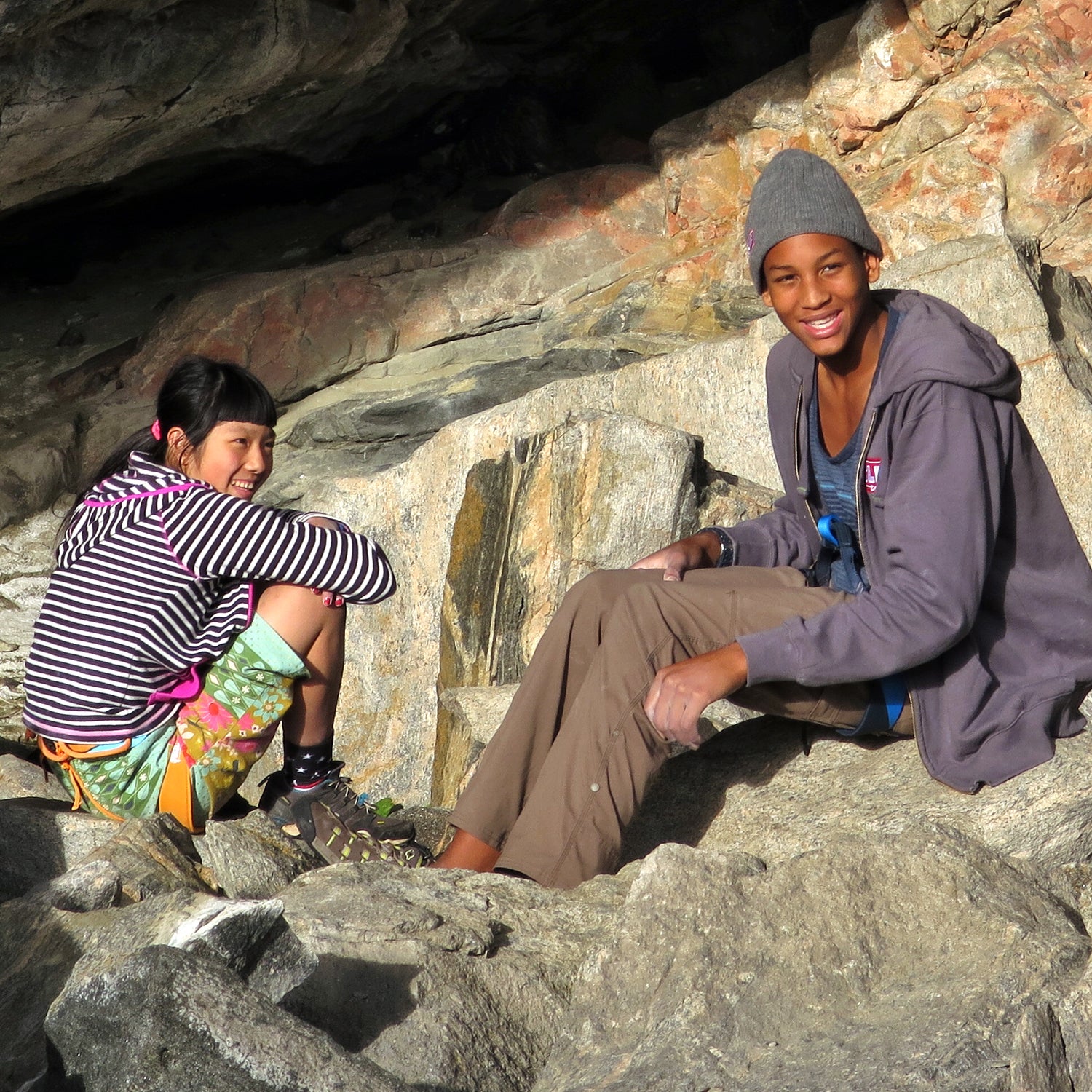Ashima Shiraishi, 14, and Kai Lightner, 16, have a lot in common. Both took the climbing world by force even before they were teens. Both are full-time students who spend most of their spare time at the gym or competing.聽And both are incredibly聽mild mannered鈥擲hiraishi and Lightner are聽modest about their own accomplishments, though聽they're perfectly happy to list聽each other's strengths. Shiraishi, who鈥檚 climbed more V14 bouldering problems than any other woman, was in 2015 by Climbing magazine. Lightner . Last year, the two phenoms finally teamed up for their first trip together, to climb in Norway鈥檚 Flatanger cave, which resulted in a Sender Films movie called Generation Up!聽
We got both of them on the phone to talk about what it鈥檚 like being the future of their sport.聽
You both started climbing at age six. Do you worry about burning out since you started so young?
鈥婼HIRAISHI: I found climbing when I was six in Central Park. My parents didn鈥檛 introduce me to it. I found it on my own and I began to rock climb through my own determination. Sometimes I get frustrated when I climb, but I can鈥檛 think of ever quitting. I get so much joy from it.聽
LIGHTNER: I always put a high priority on enjoying the sport every step of the way. It never feels like too much, and if it is, I just try to dial it back so I can keep up. If I ever found that climbing wasn鈥檛 enjoyable, I鈥檇 stop doing it, but I still have the joy for it.
How long have you two known each other?
SHIRAISHI: I think it was at my first nationals when I was eight.聽
LIGHTNER: I was 10. I never got to see her climb because she was in a different category. But even before I met her, I鈥檇 heard she was an amazing climber.聽
What do you think each other鈥檚 biggest strengths as a climber are?
LIGHTNER: It鈥檚 her mental focus and determination. She鈥檚 really good at balancing a project and not giving up. We all know she鈥檚 physically strong, but the way she鈥檚 able to pull it all together takes a lot of mental strength.聽
SHIRAISHI: Kai finds unique ways to move his body, and he thinks of ways to get up the route that nobody else does.聽
Did you play other sports growing up?
鈥婰IGHTNER: I played soccer and basketball. I wasn鈥檛 as good at them as climbing and none of it gave me the joy that climbing did. At the end of the day, climbing was always for me.聽
SHIRAISHI: I was always athletic and I used to do a lot of sports. Climbing and figure skating were my big ones, but I like climbing way more than figure skating.
You鈥檙e both full-time high school students. How do you balance it all?
SHIRAISHI: I have a pretty hard time balancing school and rock climbing because of my busy schedule. I get out of school around 3 p.m., then I go to the climbing gym for three hours or more. I get home, I do homework, and I鈥檓 usually asleep by 1 a.m. Then I鈥檓 up again at 6:30 a.m.聽
LIGHTNER: It鈥檚 definitely a juggling act. My mom is a teacher and she tries to limit the amount of school I miss, so I usually plan trips during my school breaks. My mom has always been on me to keep up with my schoolwork. If I didn鈥檛 get my schoolwork done, there was no climbing. That鈥檚 made me better at time management.聽
Is it tough to feel like a normal teenager?
SHIRAISHI: I feel like when I鈥檓 not climbing, I鈥檓 still a normal teenager. I go to school with my friends. They know that I climb but they don鈥檛 know much about it. I鈥檓 a regular 14 year old. I have a climbing world and a normal teenager world. I do make sacrifices for climbing鈥擨 can鈥檛 always hang out with my friends, or go shopping or go to the movies, but I think climbing is worth it.聽
LIGHTNER: Climbing takes up a huge amount of my time. I鈥檓 not always able to participate in after-school activities or hang out with my friends. After school, I practice, do my homework, go to bed. I do miss out on some things.聽
There鈥檚 talk of climbing making it into the Olympics in Tokyo in 2020. What do you both think of that?
LIGHTNER: When I first got into the sport, I never imagined it鈥檇 get to the Olympics. But seeing how the sport has grown and seeing how close the Olympics are, I鈥檇 be so honored to represent my country at the Olympics.聽
SHIRAISHI: That would be a dream come true. Since I began climbing, my dream was have it in the Olympics, and of course, to be there competing. All of my family lives in Japan and I have a lot of friends in Tokyo, so that would mean a lot to me.
What have you learned from climbing?聽
SHIRAISHI: Climbing isn鈥檛 easy. When you鈥檙e trying to push your limits and keep on upping your accomplishments, you can get frustrated. Much of the time, you keep falling. It鈥檚 repetitive falling. But once you stand up, you鈥檙e that much closer to getting to the top.聽
LIGHTNER: You鈥檝e got to be able to work hard. You鈥檝e got to be able to set a goal and do everything in your power to achieve it.聽


